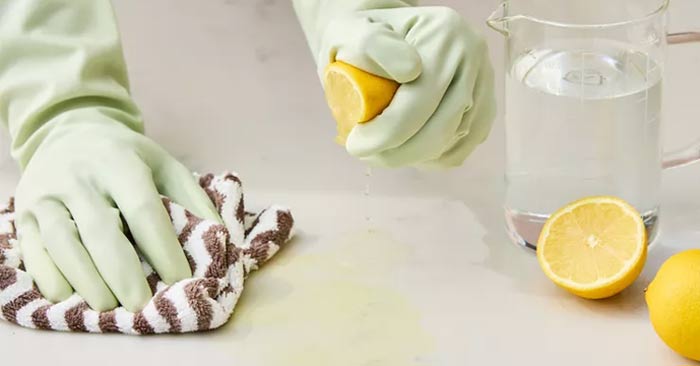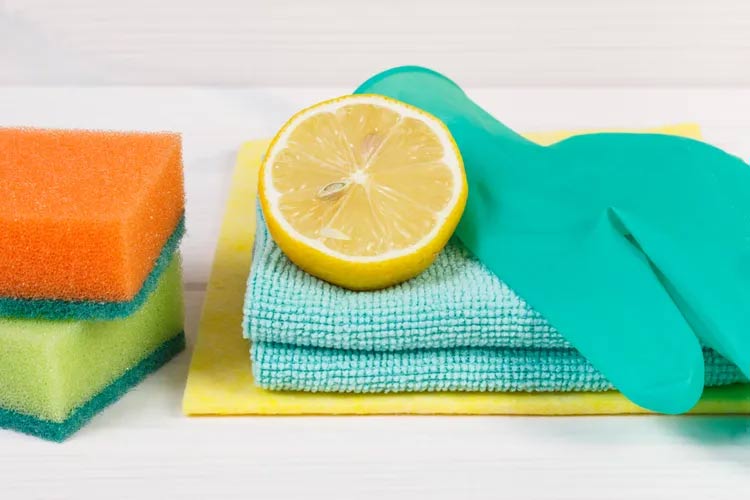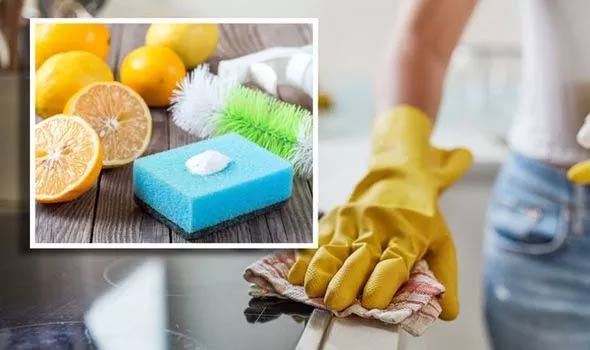Lemon water is a familiar ingredient in household cleaning, as its refreshing scent and antibacterial properties make it a great addition to homemade cleaners. However, the high acidity of lemons can also damage certain surfaces and objects.

Here is a list of items you should never clean with lemon water to avoid unsightly stains and discoloration:
Do not use lemon water on:
Aluminum Cookware
When it comes to cleaning aluminum cookware, Scott Schrader, a cleaning expert and founder of CottageCare, advises against using lemon juice as it reacts with aluminum, causing discoloration and a metallic taste in food.
Instead, Schrader recommends using a mild dish soap to clean your aluminum pots and pans.
Electronics
While you may be tempted to spray your favorite lemon-based cleaner on your TV or electronic device for a quick shine, it can do more harm than good.
“The acidic liquid will seep into the circuitry and promote corrosion,” explains Schrader.
It’s best to wipe down electronics like phones, tablets, and computers with a slightly damp microfiber cloth and use only dedicated screen cleaners.

Copper Items
Use caution when cleaning copper items as lemon juice can instantly remove patina. Some people prefer their copper shiny and looking brand new, but others appreciate the darker, natural patina. Lemon juice will strip away this patina, so the choice is yours.
Keep in mind that the acidity of the lemon will also eat away at the lacquer, removing tarnish but also exposing the metal to corrosion.
Wooden Floors and Furniture
When cleaning wooden floors or furniture, it’s best to steer clear of lemon juice as the acid can damage the finish and even cause discoloration. Opt for neutral pH cleaners that are safe for use on wooden surfaces.

Cast Iron
Lemon juice will strip away the seasoning on your cast iron cookware and make them more susceptible to rust. To properly clean cast iron, use hot water and a dedicated brush instead.
Marble and Granite Surfaces
When it comes to marble and granite surfaces like countertops, stay away from lemon juice. The acid will etch the shiny finish of these stones, leaving dull stains that can only be removed by professional resurfacing. Opt for a neutral pH marble cleaner instead.
































